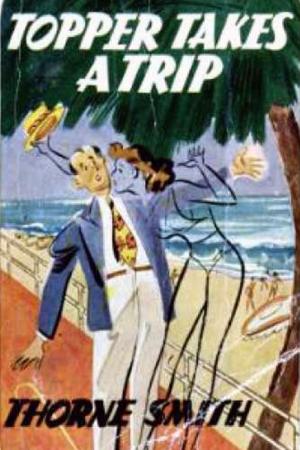Last and First Men : A Story of the near and far future
(Sunday Classic)
Fiction & Literature, Drama, Nonfiction, Entertainment, Science Fiction & Fantasy, Science Fiction| Author: | Olaf Stapledon, William Olaf Stapledon | ISBN: | 1230000033131 |
| Publisher: | Sunday_Classic | Publication: | November 24, 2012 |
| Imprint: | Language: | English |
| Author: | Olaf Stapledon, William Olaf Stapledon |
| ISBN: | 1230000033131 |
| Publisher: | Sunday_Classic |
| Publication: | November 24, 2012 |
| Imprint: | |
| Language: | English |
Last and First Men
Olaf Stapledon
Last and First Men: A Story of the Near and Far Future is a science fiction novel written in 1930 by the British author Olaf Stapledon. A work of unprecedented scale in the genre, it describes the history of humanity from the present onwards across two billion years and eighteen distinct human species, of which our own is the first and most primitive. Stapledon's conception of history is based on the Hegelian Dialectic, following a repetitive cycle with many varied civilizations rising from and descending back into savagery over millions of years, but it is also one of progress, as the later civilizations rise to far greater heights than the first. The book anticipates genetic engineering, and the idea of superminds composed of many telepathically-linked individuals. A controversial part of the book depicts humans, in the far-off future, escaping the dying Earth and settling on Venus—in the process totally exterminating its native inhabitants, a marine intelligent species. Stapledon's book has been interpreted by some as condoning such interplanetary genocide as a justified act if necessary for racial survival, though a number of Stapledon's partisans denied that such was his intention, arguing instead that Stapledon was merely showing that although mankind had advanced in a number of ways in the future, at bottom it still possessed the same capacity for savagery as it has always had.
Last Men in London (1932) is a science fiction novel by Olaf Stapledon.
The narrator is the same member of the eighteenth and final human species who purportedly induced Stapledon to write Last and First Men. Last Men in London is the story of this being's exploration of the consciousness of a present-day Englishman named Paul, from childhood through service with an ambulance crew in the First World War (mirroring Stapledon's own personal history) to adult life as a schoolteacher faced with a "submerged superman" in his class nicknamed Humpty. The inadequacies of Paul's character, the various dilemmas he has to face during his life, and the occasional influence of the advanced being who shares his experiences, provide Stapledon with a semi-autobiographical platform on which to expound his philosophical and moral beliefs.
Olaf Stapledon Books (Sunday Classic)
Darkness and the Light
Last and First Men
Last Men in London
Odd John A Story between Jest and Earnest
Sirius A Fantasy of Love and Discord
Star Maker
The Flames
The Flames
Last and First Men
Olaf Stapledon
Last and First Men: A Story of the Near and Far Future is a science fiction novel written in 1930 by the British author Olaf Stapledon. A work of unprecedented scale in the genre, it describes the history of humanity from the present onwards across two billion years and eighteen distinct human species, of which our own is the first and most primitive. Stapledon's conception of history is based on the Hegelian Dialectic, following a repetitive cycle with many varied civilizations rising from and descending back into savagery over millions of years, but it is also one of progress, as the later civilizations rise to far greater heights than the first. The book anticipates genetic engineering, and the idea of superminds composed of many telepathically-linked individuals. A controversial part of the book depicts humans, in the far-off future, escaping the dying Earth and settling on Venus—in the process totally exterminating its native inhabitants, a marine intelligent species. Stapledon's book has been interpreted by some as condoning such interplanetary genocide as a justified act if necessary for racial survival, though a number of Stapledon's partisans denied that such was his intention, arguing instead that Stapledon was merely showing that although mankind had advanced in a number of ways in the future, at bottom it still possessed the same capacity for savagery as it has always had.
Last Men in London (1932) is a science fiction novel by Olaf Stapledon.
The narrator is the same member of the eighteenth and final human species who purportedly induced Stapledon to write Last and First Men. Last Men in London is the story of this being's exploration of the consciousness of a present-day Englishman named Paul, from childhood through service with an ambulance crew in the First World War (mirroring Stapledon's own personal history) to adult life as a schoolteacher faced with a "submerged superman" in his class nicknamed Humpty. The inadequacies of Paul's character, the various dilemmas he has to face during his life, and the occasional influence of the advanced being who shares his experiences, provide Stapledon with a semi-autobiographical platform on which to expound his philosophical and moral beliefs.
Olaf Stapledon Books (Sunday Classic)
Darkness and the Light
Last and First Men
Last Men in London
Odd John A Story between Jest and Earnest
Sirius A Fantasy of Love and Discord
Star Maker
The Flames
The Flames















